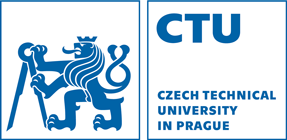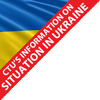
International Projects implemented at FTS
- Name:
The European Living Lab on designing sustainable urban mobility towards climate neutral cities
- Acronym:
- ELABORATOR
- Funding:
- European Union’s Horizon Europe research and innovation Programme
- Principal investigator:
- Assoc. Prof. Tomáš Tichý, MBA
- Website:
- www.elaborator-project.eu

The project uses a holistic approach for planning, designing, implementing, and deploying specific innovations and interventions towards safe, inclusive and sustainable urban mobility. These interventions consist of smart enforcement tools, space redesign and dynamic allocation, shared services, and integration of active and green modes of transportation. They will be specifically co-designed and co-created with identified “vulnerable to exclusion” user groups, local authorities, and relevant stakeholders. The interventions will be demonstrated in a number of cities across Europe, starting with six Lighthouse cities (Milano, Copenhagen, Helsinki, Issy-les-Moulineaux, Zaragoza, Trikala) and six Follower cities (Lund, Liberec, Velenje, Split, Krusevac, Ioannina).
- Name:
Skill Training Alliance for the Future European Rail System
- Acronym:
- STAFFERS
- Funding:
- European Union’s ERASMUS+ Programme
- Principal investigator:
- Prof. Ondřej Jiroušek
- Website:
- www.railstaffer.eu
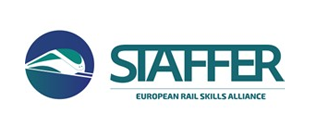
The project proposal sets a framework for strategic cooperation among key stakeholders of the rail sector. Under the umbrella of a rail Skills Alliance, businesses, education and training institutions, professional associations, and other partners together will develop and implement strategies to address skills gaps and shortage, by developing occupational profiles, vocational programmes and qualifications, as well as designing a long-term action plan to be rolled out at the European, national and regional levels. Project also supports the design and delivery of joint vocational training curricula, programmes and teaching and training methodologies, drawing on evidence of trends and skills needed in the rail sector. In addition, project explores, develops and implements approaches of education, training and skills development for cross-border railway traffic.
- Name:
Co-creating People-centric Sustainable Neighbourhoods through Urban Regeneration
- Acronym:
- WeGenerate
- Funding:
- European Union’s Horizon Europe research and innovation Programme
- Principal investigator:
- Assoc. Prof. Tomáš Horák
- Website:
- cordis.europa.eu/project/id/101123546
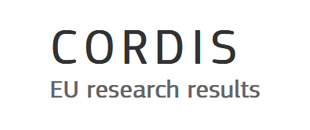
The project sets out a journey to find the right ingredients and recipes for sustainable and inclusive urban regeneration that can create long-lasting positive impacts within the neighbourhoods and beyond. The process will be highly participatory with close collaboration with the city administrations as well as the citizens, local communities, and businesses. Advanced digital applications (such as Digital Twins, Metaverse and extended reality) will be implemented and experimented to support decision-making and stimulate citizen engagement. Expertise in Social Science and Humanities is called upon to foster social innovation and participatory actions across the project. In addition to technological and social interventions, the art and cultural dimensions will be drawn on in the co-creation processes. Four sustainable and people-centric neighbourhoods will be realised by the end of the project.
- Name:
New Mobility Data and Solutions Toolkit
- Acronym:
- nuMIDAS
- Funding:
- European Union’s Horizon 2020 research and innovation programme
- Principal investigator:
- Prof. Ondřej Přibyl
- Website:
- numidas.eu

The constantly changing mobility ecosystem requires making the most of data utilisation to shed light on the effectiveness and impact of certain mobility technologies, and the citizens' mobility needs. The project provides insights on what methodological tools, databases and models are required for the successful integration of all disruptive mobility solutions with the designs of policymakers. Moreover, it explores how existing ones need to be adapted or augmented with new data. Validating the project's results within a selection of case studies in pilot cities, with varying characteristics, project aims to provide a tangible and readily available toolkit that can be deployed elsewhere, including a set of transferability guidelines, thus thereby contributing to the further adoption and exploitation of the project’s results.
- Name:
Improvement of NAPs through the Exploitation of Traffic LOD DATEX II
- Acronym:
- LOD-RoadTran18
- Funding:
- European Union’s Innovation and Networks Executive Agency
- Principal investigator:
- Ing. Zuzana Bělinová, Ph.D.
- Website:
- cef.uv.es/lodroadtran18/index.php/en/
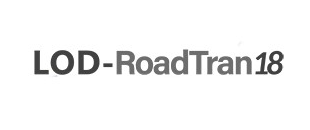
The project aims to support the re-use of dynamic Road Traffic Data in and across two Member States, namely the Czech Republic and Spain. This Action makes the European Data Portal findable, accessible, interoperable, reusable, and connects it with any other sector data by using Linked Open Data (LOD). This project improves the basic access service to open traffic data through the LOD enhanced Traffic Information System (TIS), according to the ITS Directive (2010/40/EU). The Action helps with viewing and downloading data but also improves the extraction of meaning from it, allowing other types of services which can be only achieved with the use of LOD. Project proposes an applicable EU-wide evaluation and monitoring framework for assessing the impact of the re-use of data. It offers a toolkit for National Access Points in other Member States aimed at the use of a specific common metadata model.
